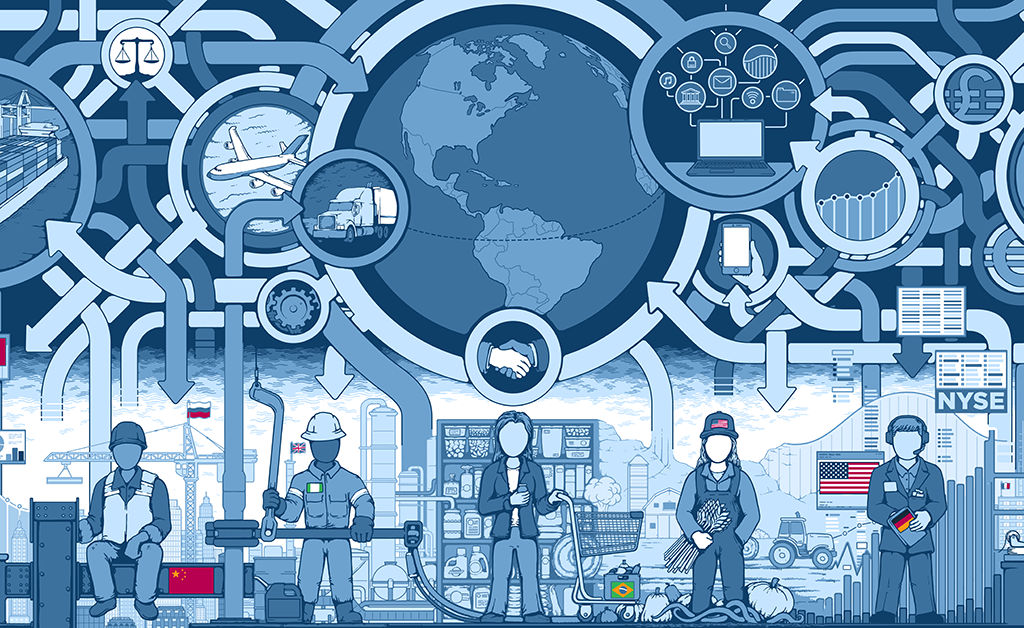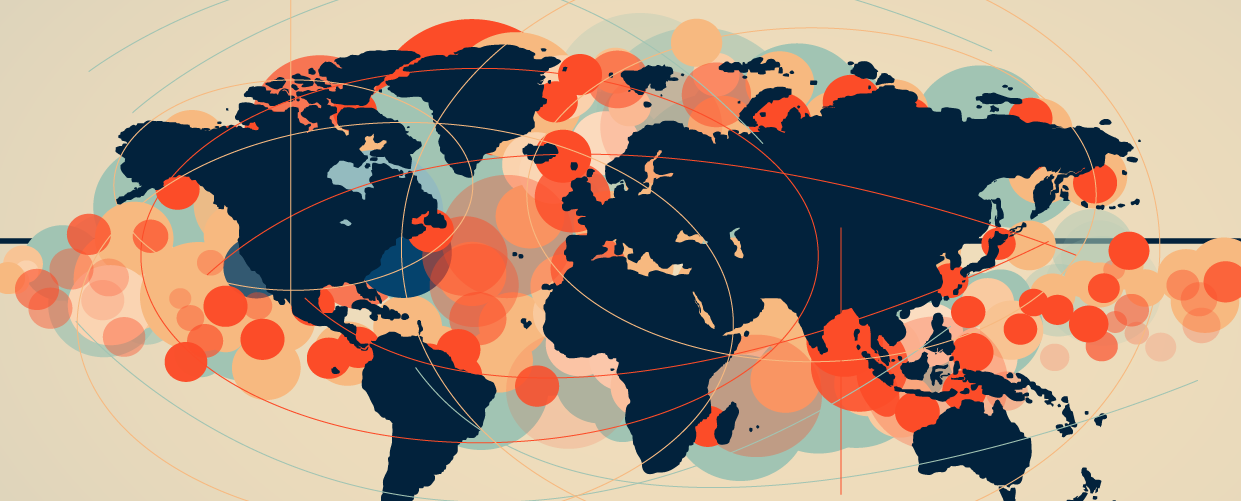According to National Geographic, the term “globalization” describes how trade and technology have made the world more interconnected and interdependent. The impact of globalization has also led to changes in economics and society. We can easily see the influence of globalization everywhere: the import and export of goods between countries, innovations in fashion trends, or large multinational corporations helping the economy to develop. However, from different perspectives, there will be different views on the issue of globalization, both positive and negative. In this post, I will outline how liberals and critical scholars differ in their analysis of globalization from Henry R. Nau’s book “Perspectives on International Relations: Power, Institution, and Ideas.”
In liberal’s view, globalization is an effective force that helps to promote interconnected states, increase democracy, and expand political liberties. With trade, investment, and finance being key factors for competitive advantage in international markets, liberal seeks responsibility, equity, and reaching greater results for all worker’s performances in institutions through education, wage insurance, and accountability of relevant units. They see the spread of wealth and the downfall of hegemony as a positive development, portraying them as absolute gains rather than relative gains. To them, economic interdependence determines security competition and reduces it. One reference Nau gave was how Bretton Woods and the European Union developed regional and global security norms, as well as having former rivals perform under common rules that reduced the importance of national differences. Furthermore, liberals believe that the development of wealth and interdependence since the beginning of the Industrial Revolution has little connection with the current division of power when compared to the path dependence of trade, investment, and finance. The scholars support wider markets that benefit everyone, which can be accomplished through multilateral trade institutions to enable freer business. Since capital inflows promote domestic innovation in future products as their foreign policy, liberal perspectives think that domestic policies related to education and technology are more important than trade ones. The scholars prefer larger initiatives to diversify investments and enhance international laws to defend national interests. They, like the World Trade Organization, desire to settle conflicts through international laws, hoping that the commercial links would become so strong that states will no longer need to utilize military forces to preserve their security. In other words, liberal wants to minimize security competition and boost shared interests. They urge immigrants to contribute to the home economy and national riches. Finally, in finance, liberal perspectives address the Basel Accords, which establish standard norms for global banks to guarantee that “financial institutions keep enough capital on hand to pay their obligations and absorb unforeseen losses” –James Chen, while also promoting coordinating currency rates. According to their argument, US authorities believe in domestic banks foreign risk management than the government and that bystanders benefited since the government bailout avoided the worst outcome.
On the other hand, critical scholars see globalization as a more negative force because it damages state sovereignty and could lead to human rights violations. The most important difference is that critical scholars tend to view power imbalances because of unequal distribution of resources, ties between states, and other factors that make up the global order. Critical theory highlights how globalization often reinforces existing power structures and benefits wealthy nations at the expense of poorer ones. It is pointed out that the process caused developing countries to lose control of national autonomy and culture. The theory also mentions the dominance of Western ideas and norms in shaping global governance. While liberal scholars focus on the potential for cooperation among states through institutions like the World Trade Organization or the United Nations, critical scholars emphasize structural inequalities within the global system. They support alternative approaches that challenge dominant structures and seek to empower marginalized actors, as mentioned in Nau’s book. Apart from the listed issues, critical analysis also presents the environmental consequences of globalization. They criticize unsustainable actions caused by businesses that overuse natural resources without regard for long-term impacts on the environment. Their study shows challenges such as increased emissions, habitat destruction, and invasive species caused by unrestrained global economic activity. The illegal deforestation in Brazil is one great example. Being the world’s largest rainforest with an enormous ecosystem and home to a variety of species, however, it has lost about 300,000 square miles due to exploitation. There are several factors that drive to the overuse of resources in Brazil, with one of them being the weakness of its government. The “Sustainable Development Goals Report: Brazil 2030” stated that Brazil’s potential to achieve the SDGs will be heavily influenced by its ability to overcome the present political instability. While Brazilian diplomats insist that the SDGs must be effectively binding for all nations, the government has made extremely slow progress in achieving any of the goals. According to the recent report, the largest barrier to progress may not be a lack of resources, but rather a lack of will to move forward. Jair Bolsonaro, the former president, was known for his disregard for established national efforts to combat deforestation in the Amazon and was responsible for a dramatic rise in deforestation.
Both viewpoints give strong thesis to support their claim, however, I believe that critical theory captures more of the global problems that humankind is facing. Critical scholars add a vital viewpoint to globalization analysis by challenging the structure of power, cultural influences, and environmental consequences. It would be ignorant to only pay attention to the benefits and be blinded by material benefits without caring about the weaknesses that need to be corrected. Critical theory contradicts “traditional” perspectives about globalization and offers a more realistic view of the current world, helping us to realize the role of each individual in protecting the global cultural and sustainable system.
Reference:
Nau, Henry R. Perspective on International Relations: Power, Institutions, and Ideas. SAGE Publications, 2019.


Leave a Reply